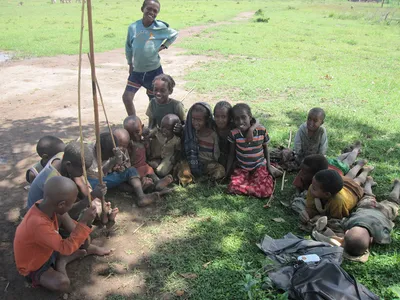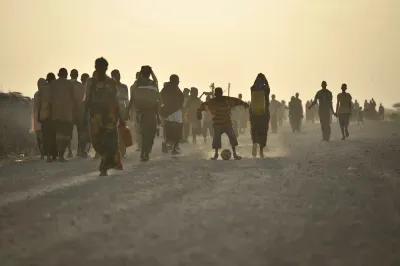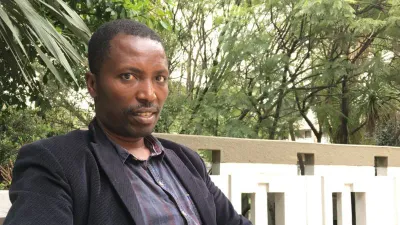From Hope to Despair: The Deepening Marginalization and Suffering of the Afar People under the Prosperity Party
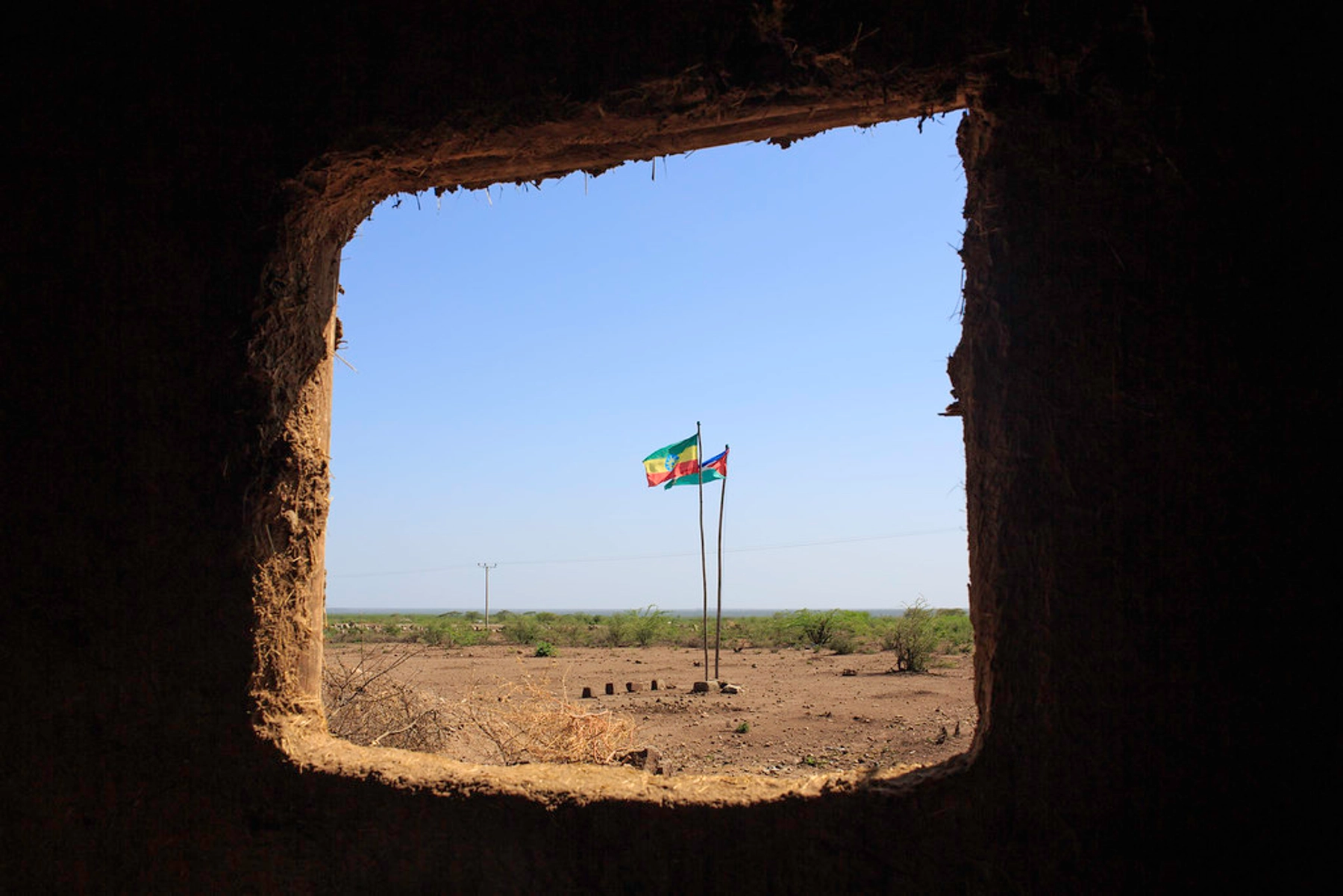
Ethiopia’s national flag flies along side the Afar Regional State flag in the Afar region, Ethiopia. April 8, 2014. Photo: UNICEF
Located in northeastern Ethiopia, the Afar Regional State is a land rich in cultural heritage and one of the country’s most strategically important regions. Yet, for decades, the Afar people—primarily pastoralists—have endured systemic neglect and marginalization under successive Ethiopian regimes. During the Haile Selassie era, forced resettlement policies uprooted thousands from their ancestral lands to make way for state-run agricultural projects. The Derg regime continued this pattern, further displacing the Afar and stripping them of their traditional livelihoods. These historical injustices left the region with poor infrastructure, limited access to education and healthcare, and scant opportunities for development.
In 1991, following the fall of the Derg regime, the Afar region was formally recognized as an administrative state. However, under the Ethiopian People’s Revolutionary Democratic Front (EPRDF), the Afar people remained politically sidelined, treated as passive supporters rather than active participants in national decision-making processes. For 27 years, the region saw little progress, with its people’s voices ignored and their needs unmet. The EPRDF’s policies deepened the Afar’s marginalization, leaving the region underdeveloped and disenfranchised.
When the EPRDF was ousted in 2018 amid widespread protests, the Afar people hoped that their longstanding marginalization was nearing its end and that a new era of inclusivity, development, and progress— at last!—was beginning. The new administration led by Prime Minister Abiy Ahmed promised representation and development for marginalized regions like Afar. Yet, as time passed, it became clear that little had changed. The Afar region remains neglected, its people still fighting for basic rights and essential services. In fact, under the Prosperity Party, the suffering of the Afar people has only deepened, with the region facing greater challenges than ever before.
The initial optimism that accompanied the rise of the Prosperity Party has given way to a harsh reality. Promises of development and inclusivity have not materialized, and the Afar people continue to face the same, if not worsened, challenges. The lack of infrastructure, economic collapse, unemployment, corruption, suppression of dissent, and the impact of the northern civil war have all contributed to the deepening crisis in the region. The Afar people, who have endured decades of neglect, continue to struggle for basic rights and development. Their hope for a better future has been shattered.
Crumbling Infrastructure and Stalled Development
Despite repeated promises, the Afar region remains severely underdeveloped. The region’s existing infrastructure, particularly its network of roads, are no longer functional due to lack of maintenance. The neglect has effectively isolated communities and cut off access to essential services. A 2020 Environmental and Social Impact Assessment (ESIA) highlighted the urgent need for multi-purpose water supply infrastructure, underscoring the region’s dire lack of basic amenities (African Development Bank, AfDB, 2020). Healthcare and education systems are in shambles. Health facilities are poorly maintained, leading to a decline in both coverage and quality of services. Schools are understaffed, underfunded, and, in some cases, completely nonfunctional. The region’s inability to attract investment due to its poor infrastructure has trapped the Afar people in a cycle of poverty, with no clear path to economic improvement.
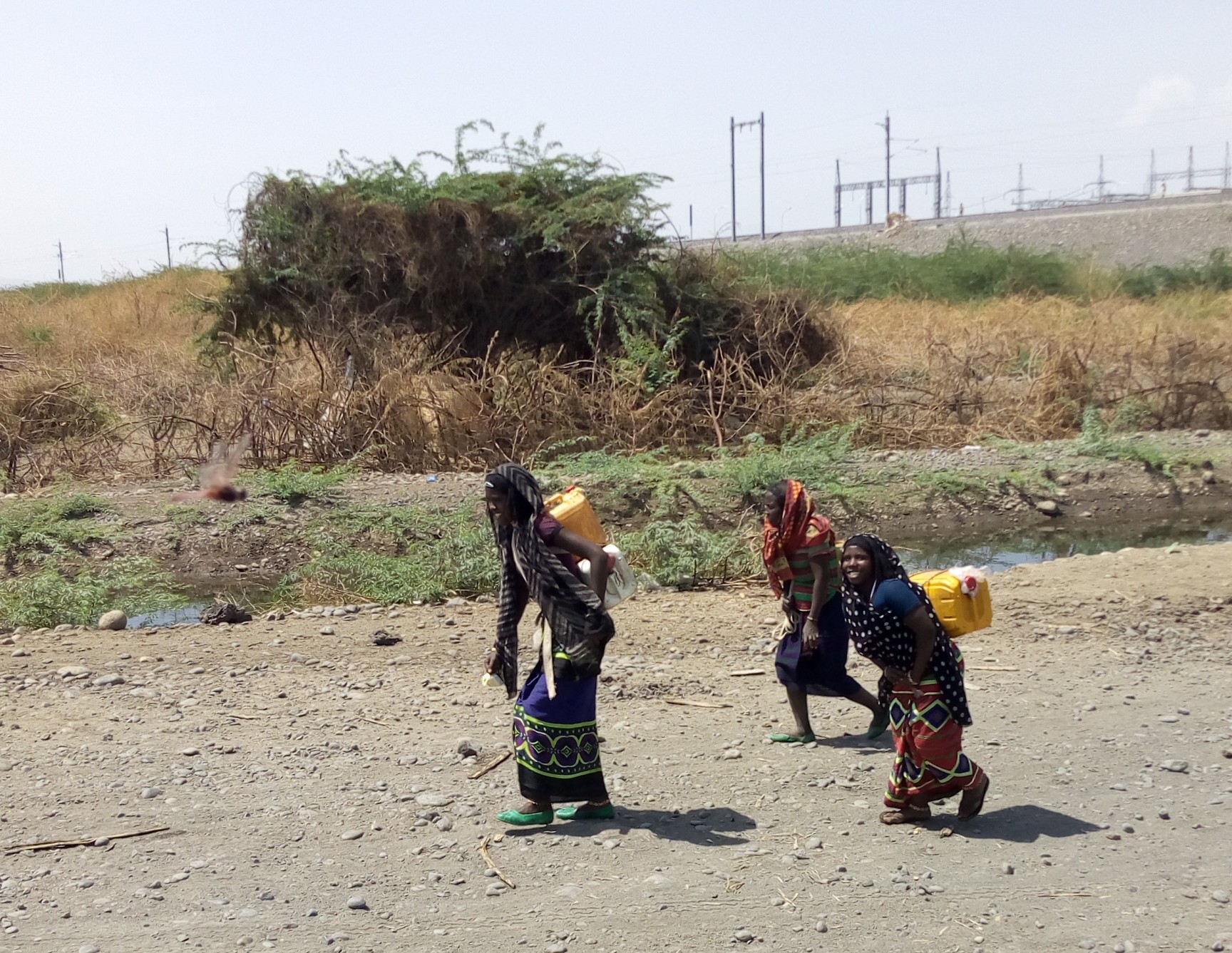
Economic Collapse and the Erosion of Livelihoods
The Afar economy, historically reliant on pastoralism, has suffered a devastating blow. Droughts, inter-ethnic conflicts, and government neglect have led to widespread loss of livestock, the primary source of income for Afar families. Many pastoralists have been forced to migrate to urban areas in search of work, only to find few opportunities. Compounding these struggles, the region faces an inflation rate of 52.4%, with food inflation reaching 55.3% among the highest in Ethiopia (UNDP, 2023). The rising cost of living has pushed countless families into extreme poverty, exacerbating food insecurity and malnutrition rates.
Unpaid Salaries and Political Retaliation
Public servants in the Afar region, including teachers and healthcare workers, have gone months without receiving their salaries. This government failure has led to the collapse of essential public services and widespread frustration among civil servants. Adding to the crisis, political purges have become rampant. Civil servants are being illegally fired not for incompetence, but for failing to praise influential individuals or for suspected ties to opposition figures. Many have lost their jobs simply because they are related to previously dismissed officials.
In recent years, the number of people jailed for political reasons in the Afar region is the highest in its history. Individuals accused of opposing the authorities, even indirectly, are arrested on dubious charges. This has created a climate of fear, where people are afraid to speak out, knowing they could face retaliation.
Wealth Concentration, Corruption, and Political Manipulation
The region’s economy is not only failing but is also being exploited by a small elite class that controls investment, contracting, and governance. For example, the Afdera-Salt deposits could be a major economic driver for the region, yet they remain monopolized by a few individuals, with minimal benefits reaching the local population.
Beyond economic corruption, the Afar region has become a source of income for federal officials, who receive commissions to maintain their power. When internal conflicts arise within the regional administration, paid activists wage social media wars on behalf of individual power brokers, rather than defending the Prosperity Party as an institution.
Political survival in Afar now depends on praising influential individuals. To gain or maintain power, one must publicly glorify these figures. When an official falls from grace, their former supporters quickly turn against them and even against the Prosperity Party itself revealing that loyalty is tied to individuals, not ideology or governance.
Suppression of Dissent and Human Rights Violations
Speaking out against the authorities in Afar has become increasingly dangerous. Many young people have been detained simply for voicing concerns on social media. The government has weaponized political purges, targeting not only known opposition members but also individuals suspected of disloyalty. Officials who question the regional leadership are swiftly removed, reinforcing a climate of fear and silence. The press has also been silenced. Journalists who attempt to report on corruption or government failures face harassment or imprisonment. This suppression has allowed mismanagement and corruption to flourish, as there are no mechanisms to hold officials accountable.
The Devastating Impact of the Northern Civil War
The Afar region has borne the brunt of the ongoing civil war in northern Ethiopia. Entire communities in the Northern Zone (Kiblati Rasu) and Central Zone (Fanti Rasu) have been displaced, with schools, healthcare centers, and homes destroyed. Thousands have been forced to flee, losing everything they owned. A 2021 Ethiopian Economic Association (EEA) study emphasized the urgent need for post-war recovery strategies in Afar, highlighting the severe socio economic damage caused by the conflict (EEA, 2021). The war has halted economic activities, worsened food insecurity, and heightened instability in the region, yet, not received sufficient recovery attention.
A Loss of Hope and Faith in the Prosperity Party
The Afar people, once hopeful that the Prosperity Party would bring meaningful change, have now lost all faith in the government. Years of unfulfilled promises, worsening economic conditions, and political repression have eroded any trust in the ruling party.
The prosperity party’s governance model has failed to address the Afar people’s real concerns. Instead of focusing on development, the region’s leadership has prioritized personal power struggles, corrupt financial dealings, and silencing dissent. In this political climate, survival depends not on competence or commitment to public service, but on one’s ability to glorify influential individuals. With no clear path forward, the Afar people are left to pray for divine intervention, as their suffering under the current regime shows no signs of ending.
Conclusion
The Afar region’s plight under the Prosperity Party is a stark reminder of how empty promises can lead to profound despair. The region is in the grip of a humanitarian and political crisis that demands immediate intervention. Without urgent reforms from both the Ethiopian government and the international community, the Afar people will remain trapped in poverty, repression, and economic stagnation.
The time for real accountability and development is long overdue. Only through transparent governance, inclusive politics, and genuine investment in infrastructure can the Afar people break free from decades of systemic neglect. Until then, the Afar people will remain abandoned, their cries for justice and dignity unanswered.
We need your support
We trust you found something of value in this article. If so, we kindly ask you to consider helping Curate Oromia continue its work.
If you believe in the importance of independent voices and honest reporting, we invite you to support our efforts through our GoFundMe campaign.
Every contribution, however small, goes directly to our writers and the expansion of our reach.
Thank you for your support.

